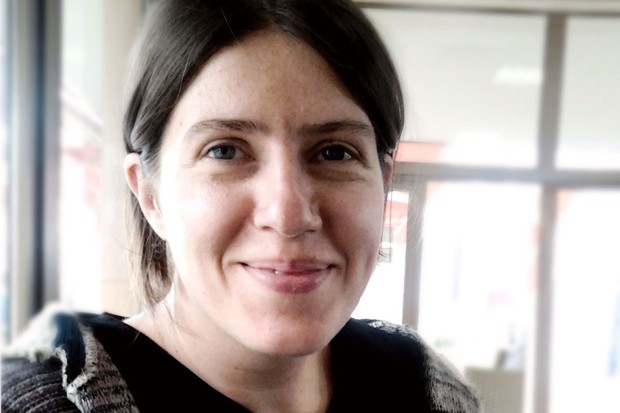Jovana Nikolić • Producer
“The new generation of documentary filmmakers in Serbia has talent and desire”
- Cineuropa met up with Jovana Nikolić, of Serbia’s Prababa Production, who has been selected for EFP’s Producers on the Move platform this year

Jovana Nikolić is one of the few exclusively documentary producers in the Balkans. Through her company, Prababa Production, she has been producing films directed by her husband Dragan Nikolić, including The Caviar Connection (2008) and The Undertaker (2013), both of which premiered at the IDFA. She recently established DOKSERBIA - the Association of Serbian Documentary Filmmakers - and is currently working on two new feature-length documentaries, again with Dragan at the helm. Nikolić is one of the 2017 Producers on the Move.
Cineuropa: Tell us about your two upcoming films, The Black Wedding and Super Bishop.
Jovana Nikolić: The Black Wedding deals with the custom of posthumous marriage, through the viewpoints of three generations of women from Eastern Serbia whose lives have remained forever marked by this event. It's about the need to keep our love alive despite the loss of a loved one. It took us almost ten years to get authentic footage of this custom, because the local community in Serbia is very protective of it, but through our research, we found out that similar customs also exist in Romania, France, China, Mexico and parts of Africa. So this is a universal theme, told here through quite a unique story. The film is in development, and we expect to have it finished in 2019.
Super Bishop is about Bishop Grigorije, a Serbian Orthodox priest serving in Bosnia and Herzegovina. A former football player, and an avid intellectual, he belongs to a modern, progressive trend in the Church, as opposed to the dominant conservative, traditional one. We started developing the project in 2009 when Grigorije came to prominence as one of the candidates for the new Patriarch of the Serbian Orthodox Church. During our research, we discovered other modern religious leaders of all three major denominations in Bosnia, who are doing all they can to keep young, educated people in the country where war ended 25 years ago but where things are by no means getting better. We are currently in production and hope to finish the film in the second half of 2018.
You are an exclusively documentary producer. Are you interested in working on fiction films as well in the future?
I am certainly considering it. However, documentaries require time for a story to grow, and it is only in editing them that they take their real shape. Research and development take much longer than with fiction films. And when you finally finish a movie and it turns out to be successful, this inspires you to keep working in the same way; you even get hooked on this process and all the risks it entails. So this is what keeps me in the documentary field.
You recently established DOKSERBIA, the Association of Documentary Filmmakers of Serbia. How did this come about, and what are the association's goals and activities?
The new generation of documentary filmmakers in Serbia has talent and a desire to improve itself. They have the know-how and eagerness to continuously work and collaborate with colleagues from the region and the rest of the world. We have recognised a need for organised action through an association of documentary filmmakers and producers, with the aim being to come up with systematic solutions for the developing field. Since we founded DOKSERBIA in December 2015, we managed to get the Film Centre Serbia (FCS) to introduce a separate competition for the funding of documentary projects and increase the financing available for this field (up to €60,000 for the production stage). Also, now, documentaries are eligible for minority co-production competitions, and the gap between the money available for documentaries and fiction is now closer to the EU average. Until recently, FCS supported only up to three feature-length documentaries, and today the figure stands at 15.
Another crucial activity is the fact that DOKSERBIA representatives will take part in the work on the proposal for the new Audiovisual Law, which will replace the existing Cinema Law. The new legislation should help FCS to become more independent from the government budget, and develop the system already in place in most of Europe, with the income of TV and cable operators, internet and mobile providers, and the state lottery going into local film production.
Did you enjoy reading this article? Please subscribe to our newsletter to receive more stories like this directly in your inbox.















